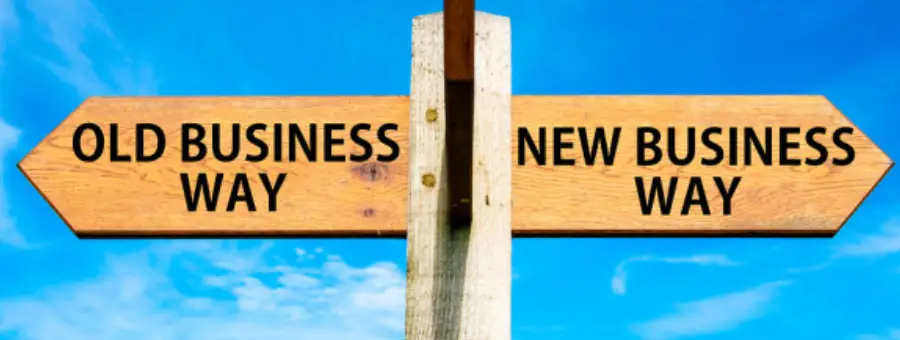
Game changers are not always necessary to ‘win’ or succeed .. but they can certainly help! And I’m talking about business and sport.
I find it staggering that so many industries in Australian business have been prepared to go for so long working inside the same parameters that have been in place for years. The same can be said of many sports, until recent years.
Parameters are those unwritten ‘rules of the game’ that organisations, teams and individuals abide by, even though they aren’t actually rules. An American airline company, years ago, scrapped assigned seating on planes and the normal ‘inbuilt’ benefits, for the sake of cheaper fares .. and gained significant and profitable market share. McDonalds stuck a playground with a clown on the side of a fast food place and enticed families in through ‘kiddie marketing’. Banks created ATM’s, reduced their costs and increased convenience for customers. Red Bull blew up the ‘healthy drink / nice taste’ parameter and promoted having a high sugar / high caffeine hit! Yellow Tail scrapped corks in wine bottles, the notion that expensive means quality, created ‘recently made means fresh’ (rather than having to age wine) and that one white / one red on the market is all you need. Companies like Orange (remember that?) blew up the notion that businesses had to be called something that represents what you do or sell. Apple created demonstration stores rather than sales outlets. Australia II won the America’s Cup with a winged keel. In Australian Rules football, there was never a rule that each side had to have players in set positions, with 18 of them spread across the playing field … but for about a hundred years, that’s what coaches instructed their players to do! Along came game changing coaches who smashed that and gained a significant advantage over competitors in doing so. Subway put exhaust fans at their entry points to blow the enticing smell of their bread into the nostrils of passers by. Colgate increased profit significantly by making the hole bigger in their tubes! Redheads put the abrasive side to light matches on only one side of the match box and saved costs. And I could go on.
The point is this … if you play inside the current parameters of your industry you have to be (significantly) better than your competitors. If you change the parameters, you change the game … and it’s then easier to win because you’re playing YOUR game!
If we talk about business, this represents one of their biggest opportunities. Larger businesses have the resources to devote to creating game changers (not that they always do that) but smaller / medium size businesses don’t have the same resources, including the time. But because this represents probably the simplest way to beat the opposition, the time and effort has to be directed to creating game changers. Game changers don’t have to be expensive; sometimes they are just a bloody good new idea … have a look at the examples above .. some of them are very inexpensive or even cost reducing.
Let me pick on some of the tired industries that I observe in Australia … sorry, but it demonstrates the point. The Accounting industry has been billing in six minute timeslots, billing for phone calls and photocopies, and really providing little more than tax and compliance services to the SME business community, since the day dot. The real estate industry has been stuck in the same parameters for years … list a home, bring people through, charge commission, dress sales people in suits, train and licence them quickly … with massive failure rates of new people entering the industry. Retail in Australia , until recently, has done little more than extend opening hours … they’ve maintained the same old bricks and mortar shop fronts that have always existed (spruced up a bit), provided essentially the same customer experience (or worse), continued the old ‘Sale On Now’ approach, and sat back to watch as online selling slaughtered them. Trades people servicing the private market in Australia pretty much work the same as they always have, with so many of them turning up when they feel like it, not returning calls, providing mediocre work quality and leaving a mess at the end of the work … can’t wait to see what someone can do to that industry. The Financial Planning industry has only partially gotten past commission based remuneration (which can conflict their advice), volume bonuses from providers (which can conflict their advice) and lots of words that attempt to portray independent expert financial advice .. if that were actually the case, they wouldn’t all have to be saying it in all of their marketing. That will all sound highly sarcastic and critical .. it’s actually not meant to be. It’s more powerful when it’s all expressed in such simple terms. So many industries are stuck working within the same parameters as they always have, with competitors fighting to gain an edge by essentially doing the very same things their competitors are doing .. if that’s not the definition of unproductive, I don’t know what is. It just might take less effort, time and money to create that edge by coming up with a game changer!
So, what’s the process to create and implement some game changers?
- First and foremost, a question has to be asked and answered with the utmost honesty. Do you have the courage to genuinely enter this territory? If and only if the answer is Yes, will any of this come to fruition.
- The second step is also critical and has to be accurately and comprehensively handled. List the parameters within which your industry currently operates .. all of them. For example, bricks and mortar retail has opening hours of x to y, potential customers come in and are asked ‘Can I help you?’ (essentially), shops display goods spread around the floorspace, shops are staffed by managers and shop assistants, goods are ‘wrapped’ and given to the customer, etc. Medical centres have people come in at appointed times (yet keep many waiting past that time), charge scheduled fees, ask for payment upon exit of the patient, etc. The key here is to make sure EVERY current parameter of the industry is listed so that they can be all be examined as to whether there are different ways .
- Enlist people from outside your organisation AND from outside your industry to help you critically examine the list of current parameters you came up with in point 2, and to help design one, two or more new parameters. An eye has to be kept on cost and level of risk, of course, but neither of those factors should be used to dismiss possible parameter changes, of themselves … they should be evaluated. It’s so important in this step to consistently ask ‘Why’ for current parameters and ‘Why not’ for possible new parameters, to engage open minded, creative thinking.
- Look for different parameters, not better ones. Looking for ‘different’ forces creativity; looking for ‘better’ encourages thinking along the same lines as already exist. Extended opening hours v online access. Improved customer service v drive-through. Train harder v train at altitude. Improve sales outlets v replace them with something different.
- Once the possible new parameters are chosen, look at them (in writing) and judge their likelihood of success to beat the opposition , for the move forward. If you’re not satisfied, further adjustments are necessary. And when you look at the proposed full set, ask the question ‘Do these changes represent peripheral or fundamental change?’ If the parameters being changed are more peripheral but there are a lot of them then that probably represents a fundamental change because of the sum of them. If it’s only one or two parameter being changed then they have to be more fundamental in nature. And note, the question is not ‘Will this work?’ … the question is ‘Might this work?’ . There are no guarantees and anyone in business or sport has to operate with that .. it’s the ability and courage to guess (beyond assess) that creates success. Once the parameter changes have been chosen (that add up to game changers) then they have to be accurately designed (i.e. moved to a practical level) and costed, and time frames mapped out for their implementation.
- Last, once game changers are implemented they will only last three to six months before they are copied by competitors, so the process must begin again within that time frame. There’s no such thing as getting a sustained leap on your opposition by one set of changes. Apple got miles ahead of their opposition through the iPod / iPhone / iPad but they are being seriously challenged now by Samsung and others, who have essentially copied them (even possibly improved what Apple came out with).
Where are your organisation’s game changers for the coming six months? They won’t happen of themselves, because we are all so busy ‘doing the work’. This approach takes courage, free thinking, breaking of habits and the utilisation of external people for objectivity. People within an industry, sport or business, can so easily become internalised and that can make it difficult to see beyond the current situation. I recently asked a group of successful hairdressers ‘Who has their top clients as shareholders in your business?’ The point wasn’t that it was a good idea .. the point was no one had considered it. Imagine having your top ten clients each owning 2% of your business so they become advocates, vested in the success yet the original owner still has complete control. Silly idea? Doesn’t matter .. it’s outside the square and it is the type of thought or question that can lead to significant success. Coming up with an high sugar / high caffeine drink could easily have been considered to be a silly idea too! Mother, where would we be if those ideas were shut down by every business?
Previous Newsletter Articles
Contact Us
1300 022 270
enquiries@myabbs.com.au
Book An Appointment




